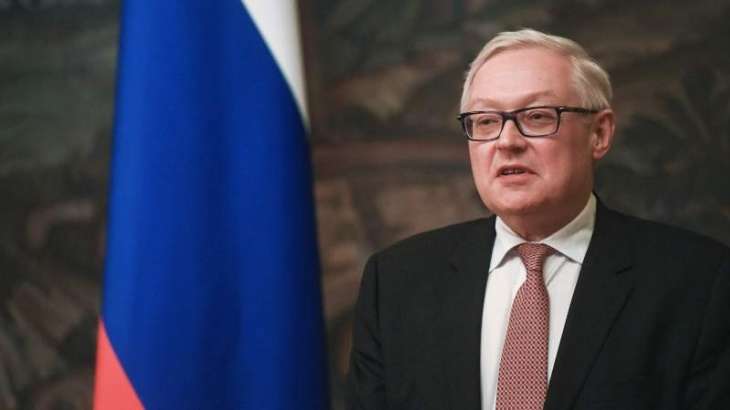Moscow proposed that Washington sign an additional protocol to the Intermediate-Range Nuclear Forces Treaty (INF) that expanded to include an issue regarding the use of unmanned aerial vehicles (UAVs), but the United States refused, Russian Deputy Foreign Minister Sergey Ryabkov said on Friday
MOSCOW (Pakistan Point News / Sputnik - 25th October, 2019) Moscow proposed that Washington sign an additional protocol to the Intermediate-Range Nuclear Forces Treaty (INF) that expanded to include an issue regarding the use of unmanned aerial vehicles (UAVs), but the United States refused, Russian Deputy Foreign Minister Sergey Ryabkov said on Friday.According to Ryabkov, the United States' unwillingness to negotiate the essence of mutual claims and attempt to find solutions suitable for both sides led to the collapse of the INF Treaty.
"For instance, perhaps, not everyone fully understood why Russia linked the use by US of heavy attack drones to the INF Treaty. The fact is that the treaty contained a definition of a ground-based cruise missile, which completely covered unmanned aerial vehicles that performed attack functions. The US told us do not play the fool, because you understand the difference between a drone and a cruise missile. The difference is that a cruise missile has a 'one-way ticket,' while a drone returns to its base after a strike, and at the time when the treaty was concluded no UAVs were in service," Ryabkov said at a conference.
Russia, on its part, also urged the US to stop "fooling around" and proposed the submission of relevant clarifications to the INF Treaty, according to the deputy foreign minister.
"[We proposed to] write an article or add a protocol to the agreement, where it would be written that the definition of the relevant aircraft does not apply to UAVs, because they return to the base. The US did not want to do this. This would have solved one problem," Ryabkov added.
The nuclear pact, signed by the United States and the Soviet Union in 1987, was terminated on August 2 at the United States' initiative after the country formally suspended its INF obligations six months earlier. Both countries had repeatedly accused each other of violating the deal, which banned any ground-launched ballistic and cruise missiles with ranges of 500 to 5,500 kilometers (310 to 3,417 miles).
In September, Russian President Vladimir Putin sent a proposal to leaders of several countries, including NATO members, to introduce a moratorium on the deployment of INF Treaty-covered missiles in Europe and other regions. Later, NATO confirmed that it had received the letter, but did not consider this proposal credible.




